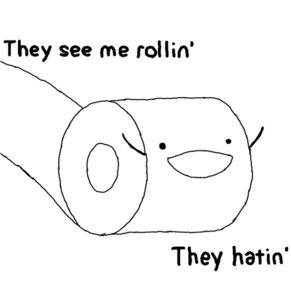12681128
Substitution Reactions
Description
No tags specified
Resource summary
| Question | Answer |
| What are photochemical reactions? | Reactions that are started by light |
| Complete the sentences: Haloalkanes are formed when _________ react with __________ in photochemical reactions. During the formation of haloalkanes, a ______________ atom is _______________ (replaced) by a halogen such as chlorine or bromine in a ___________ _____________ reaction. | Haloalkanes are formed when HALOGENS react with ALKANES in photochemical reactions. During the formation of haloalkanes, a HYDROGEN atom is SUBSTITUTED (replaced) by a halogen such as chlorine or bromine in a RADICAL SUBSTITUTION reaction. |
| What is the name of the process involved in the synthesis of chloromethane? | Radical substitution |
| Give the balanced symbol equation for the synthesis of chloromethane | CH₄ + Cl₂ --> CH₃Cl + HCl |
| What are the 3 stages of radical substition? | Initiation Propagation Termination |
| What happens during initiation? | Sunlight provides enough energy to break some of the Cl-Cl bonds (this is photodissociation) The bond splits equally and gets to keep one electron (homolytic fission) These atoms are highly reactive radicals, Cl•, because each one has an unpaired electron |
| Give the equation for the initation stage in the synthesis of chloromethane | Cl₂ --> 2Cl• |
| What happens during propagation? | Radicals are used up and created in a chain reaction First Cl• attacks a methane molecule The new methyl radical, CH₃•, can then attack another Cl₂ The new Cl• can attack another CH₄ molecule, and so on, until all the Cl₂ or CH₄ molecules are used up |
| Give the equations of the propagation stage in the synthesis of chloromethane | Cl• + CH₄ --> CH₃• + HCl CH₃• + Cl₂ --> CH₃Cl + Cl• |
| What happens during termination? | If two radicals join together, they make a stable molecule - this terminates the chain reaction |
| Give the 3 possible equations for the termination stage in the synthesis of chloromethane | CH₃• + Cl• --> CH₃Cl CH₃• + CH₃• -->C₂H₆ Cl• + Cl• --> Cl₂ |
| What are the problems associated with radical substitution? | You get a mixture of products even if you are trying to make a single particular product It can take place at any point along the carbon chain, forming a mixture of isomers |
| What is one solution to reducing the chance of by-products forming? | Have an excess of a reactant For example, in the synthesis of chloromethane, there could be an excess of methane. There'll be a greater chance of a chlorine radical colliding only with a methane molecule and not a chloromethane molecule |
Want to create your own Flashcards for free with GoConqr? Learn more.

